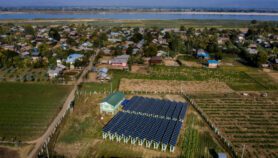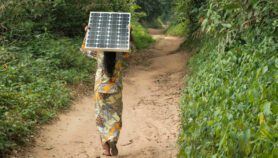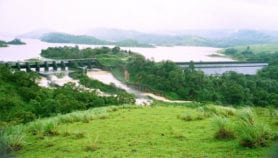By: Archita Bhatta
Send to a friend
The details you provide on this page will not be used to send unsolicited email, and will not be sold to a 3rd party. See privacy policy.
[NEW DELHI] India has begun setting up computerised ‘smart’ mini—grids powered with renewable energy sources to provide electricity in inaccessible areas.
India’s ministry of new and renewable energy (MNRE) this month (1 July) commissioned the country’s first ‘renewable energy-based smart mini-grid system’ at Gurgaon, outside New Delhi.
The computerised electricity distribution system is equipped with sophisticated sensors and control devices to manage local electricity supply drawn from a mix of solar cells, micro-hydro power plants, wind turbines and biomass.
The national power grid and small diesel-powered generators offer a back-up to the system should renewable energy supply fail. Response to power fluctuations and blackouts is faster than the conventional grid, Parineeta Mohanty, fellow at The Energy and Resources Institute (TERI), New Delhi, told SciDev.Net.
"The system is based on a computer programme that picks up electricity from these sources, and monitors and balances the power according to requirement. The programme dictates how much energy will be picked up from which source at a particular time," Bibek Bandyopadyay, who heads the solar energy centre at MNRE, said.
"Renewable energy, like solar and wind, is not always available. The smart grid helps in switching from one energy source to another depending on demand and availability, so that reliable power supply can be ensured at an affordable cost even in remote areas," he explained.
Smart grids can be used, for example, in Lakshadweep, an archipelago in the Arabian Sea, which now depends on diesel shipped in from the mainland to power generators.
TERI developed the smart grid with help from Australia’s Commonwealth Scientific and Industrial Research Organisation. Similar grids are widely used in advanced and developing countries.
Subhesh Bhattacharya, senior lecturer at the centre for energy, petroleum and mineral law and policy at the University of Dundee, Scotland, who is working on renewable energy systems in developing countries, said propagation of renewable energy-based smart grids could evolve as a viable policy for developing countries.
A digitally controlled mini-grid helps "technological leapfrogging in the (renewable energy) supply and, if the systems are properly standardised, they can be easily integrated into the national grid", he observed.













